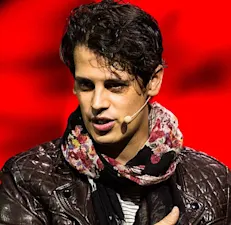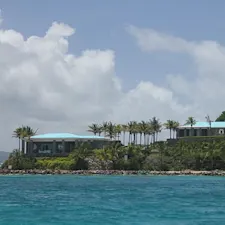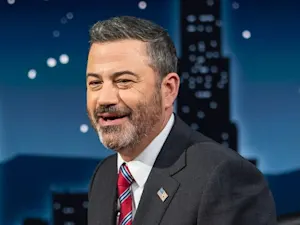
Trump Leaves Europe Hanging to Call Putin
In a move that stunned observers, President Donald Trump reportedly paused a high-stakes summit in Washington to place a call to Russian President Vladimir Putin. The call, which was originally scheduled to occur after the meeting, exposed a glaring lack of coordination with European allies and raised fresh concerns about Trump's priorities amid the ongoing Ukraine conflict.
A Summit Interrupted
The August summit brought together President Trump, Ukrainian President Volodymyr Zelensky, and top European leaders including Germany's Chancellor Friedrich Merz, France's President Emmanuel Macron, Italy's Prime Minister Giorgia Meloni, Finland's President Alexander Stubb, British Prime Minister Keir Starmer, and the European Union's Ursula von der Leyen. The gathering was billed as a critical moment to discuss security guarantees for Ukraine and explore pathways toward peace after nearly four years of war.
However, the meeting took an unexpected turn when Trump left the talks with the European delegation to call Putin. According to an EU diplomat who spoke to Reuters, the call was initially planned for after the summit but was moved up without prior consultation with the European leaders present. This sudden shift left many scrambling to adjust and fueled speculation that Trump might be prioritizing direct engagement with Putin over maintaining a united front with allies.
A Diplomatic Spectacle
The spectacle of the U.S. president hanging up on Europe to speak with Russia's leader during a summit focused on Ukraine's future was met with a mix of disbelief and frustration. Critics described the move as a stunning betrayal of coalition unity, highlighting the risks of diplomatic recklessness at a moment when Western solidarity is crucial.
President Trump later posted on his Truth Social platform that the call was part of arranging a future meeting between Zelensky and Putin, followed by a trilateral summit including himself. Trump described the day's events as a "very good, early step" toward peace and said that "everyone is very happy about the possibility of PEACE for Russia/Ukraine," according to The Guardian.
Allies Left in the Dark
British Prime Minister Keir Starmer described the talks as "good and constructive" but emphasized the need for a "lasting, fair, just" peace that involves Ukraine fully at the negotiating table, as reported by The Guardian. According to The Times, Starmer also reaffirmed the UK's readiness to put "boots on the ground" in Ukraine as part of security guarantees, a stance that contrasts with Trump's repeated rejection of Ukrainian NATO membership.
The Question of Territory
One of the most contentious issues remains the question of territorial concessions. Ukrainian President Volodymyr Zelensky insisted that any territorial issues would be settled directly between Ukraine and Russia, and that Ukrainians would not "gift their land to the occupier," according to The Times.
German Chancellor Friedrich Merz likened the Russian demand for Ukraine to surrender parts of the Donbas region to the U.S. having to give up Florida, highlighting the unacceptability of such terms, as reported by The Guardian.
A Fractured Coalition
The summit revealed cracks in the Western coalition's approach to the conflict. While Trump appeared eager to push for a comprehensive peace deal without a ceasefire, European leaders maintained that a ceasefire was a necessary precursor to any lasting agreement.
"I don't think you need a ceasefire. You know, if you look at the six deals that I settled this year, they were all at war, I didn't do any ceasefires," Trump said, as reported by The Times. He continued, "I know that it might be good to have, but I can also understand, strategically, why one country or the other wouldn't want it."
It is also worth noting that Trump's claim of having ended six wars since becoming president is disputed and lacks independent verification, with analysts pointing out that this is an increase from his previous claims and remains unsubstantiated.
According to The Guardian, Chancellor Merz stated he could not imagine the next meeting taking place without a ceasefire in place, reiterating, "we would all like to see a ceasefire," according to The Guardian.
The divergence in strategy was further underscored by President Emmanuel Macron's call for a "quadrilateral" meeting involving Russia, Ukraine, the U.S., and a European or NATO representative, signaling Europe's desire for a more inclusive negotiation process, as reported by The Times.
The Human Cost and Urgency
Amid the diplomatic drama, the human toll of the conflict remained painfully evident. Russian drone reportedly strikes killed civilians, including children, in Kharkiv and other regions just hours before the summit, according to The Times. Zelensky condemned these attacks as cynical attempts to undermine peace efforts and reiterated the urgent need to stop the killing.
Melania Trump's personal letter to Putin, delivered by President Trump during a recent summit in Alaska, highlighted the plight of thousands of Ukrainian children still missing or held in Russian-occupied territories, as reported by The Guardian.
What Comes Next?
As the summit concluded, the leaders refrained from taking questions, moving instead to a closed-door session. The European Union planned an emergency video conference to debrief other member states on the outcomes, according to The Times.
Trump's promise to arrange a trilateral meeting with Putin and Zelensky remains a focal point, but skepticism lingers about whether such a summit can overcome the deep divisions exposed in Washington. The question of whether Trump's approach will strengthen or undermine the coalition's efforts to support Ukraine and deter Russian aggression remains open.
For now, the world watches as a U.S. president's phone call to a Russian leader interrupts a summit meant to unify allies, leaving many to wonder if the pursuit of peace is being sacrificed on the altar of political spectacle.
References: Trump interrupts talks with European leaders to call Putin, says EU diplomat | Starmer describes Ukraine talks as 'good and constructive' - as it happened | Ukraine | The Guardian | Trump meets Zelensky in the White House - as it happened






















